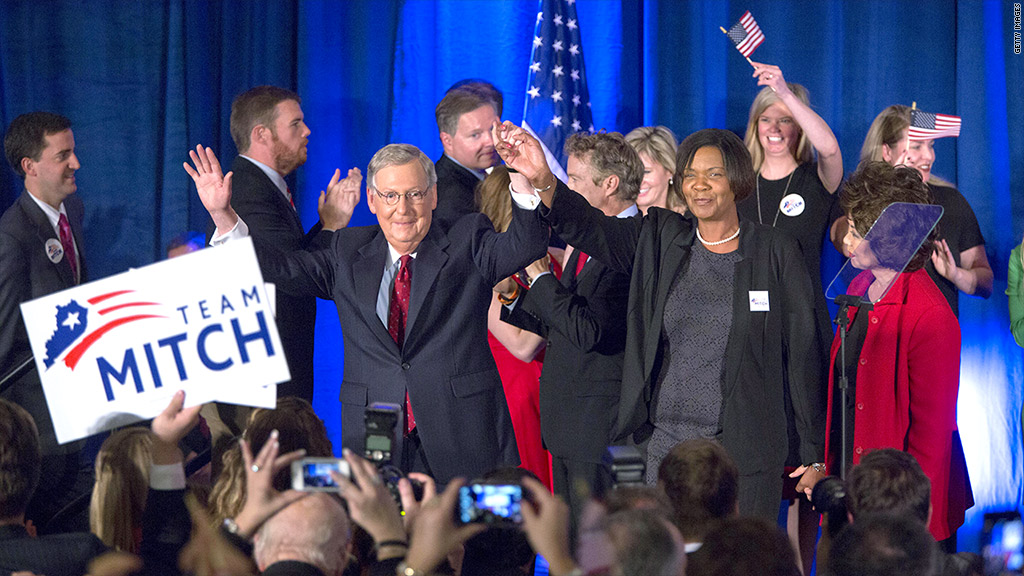
It's done: Republicans will control both the Senate and the House next year. So what does that mean for taxes, a hot-button issue that Republicans raise at every turn?
For starters, they'll need to come up with a real platform.
"The pressure is on for them to show their cards, starting with tax reform," Greg Valliere, chief political strategist for the Potomac Research Group, said in a note Wednesday.
Still, the odds for an overhaul of the tax code remain low for 2015 and 2016, analysts say.
That's partly because reform is hard, and there isn't universal agreement on how to go about it within the Republican party, let alone between Republicans and Democrats.
What's more, any fix would likely focus solely on corporate tax reform and ignore individual taxes. Many tax experts think that would be a mistake since many large partnerships and other business entities file under the individual code.
Regardless, it will be hard to square Republicans' desire for a much lower corporate tax rate with the need to raise at least as much revenue as the current code.
Getting the White House on board also may be tough.
Related: Forecast for new Congress: Gridlock, partisan warfare

On the surface, President Obama and Republicans agree that corporate tax reform should lower the top corporate income tax rate and be revenue-neutral -- meaning the code would raise as much money after reform as it did before.
But they disagree about how low that top rate should be: The White House says 28%, and some Republicans have been aiming for a rate as low as 25%.
They also are at odds over how U.S. corporations' foreign profits should be taxed.
What's more, the two sides are likely to disagree on which business tax breaks to eliminate or curtail.
"Both houses could move on corporate tax reform," Valliere said. "But it's unlikely that the White House would accept a bill that doesn't raise revenues, and chances are slim that House conservatives would accept any tax hikes whatsoever."
Is there anything they do agree on? Maybe.
The one concrete tax change analysts say could occur in the next year under GOP control is a repeal of a tax on medical devices, which was created to help fund Obamacare.
Repealing the measure has some bipartisan support. And of all the changes to health reform that Republicans have called for, it's probably the easiest pill for President Obama to swallow.
That's especially the case if it's included in a must-pass bill, such as legislation to keep the government funded or to raise the debt ceiling, both of which will be drafted between now and next summer.
